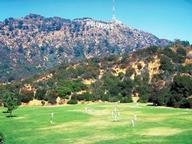Quiz Answer Key and Fun Facts
1. After skipping a year, Bob Hope returned to host the 17th Academy Awards ceremony for the fifth time. Which actor and director (whose son James and grandson John both became actors) co-hosted with him?
2. This year (1945) marked the first time that the Academy Awards were broadcast nationally over the radio. On which network, 'sadly' no longer in service, did this happen?
3. Which actor, who started his career as a musical entertainer before going into film, won the Oscar for Best Actor for his role as Father Chuck O'Malley in "Going My Way"?
4. Barry Fitzgerald was nominated for both Best Actor and Best Supporting Actor for the same role in the same movie (He won for Best Supporting Actor). What role?
5. Her first Best Actress nomination came with "For Whom the Bell Tolls" (1943) at the 16th Academy Awards. Just one year later brought success with her role as Paula Alquist Anton in "Gaslight". Who won?
6. Which member of a significant acting family and "First Lady of the American Theatre" was awarded the Best Supporting Actress Oscar for her role as Ma Mott in "None But the Lonely Heart"?
7. The Academy Award for Best Original Screenplay went to a biographical film about the 28th president of the United States. What was it called?
8. Frank Butler and Frank Cavett accepted the Oscar for Best Adapted Screenplay for their rendition of a story by Leo McCarey about a young priest taking over a parish from an older, established priest past his prime. What was it called?
9. The Academy Award for Best Director was the second win for this director, who won it the first time for 1937's "The Awful Truth". Who won for directing which movie?
10. The Best Picture winner this year was a musical comedy-drama that was the highest-grossing movie of 1944 and also won the Oscar for Best Song with "Swinging on a Star". Which film?
Source: Author
reedy
This quiz was reviewed by FunTrivia editor
skunkee before going online.
Any errors found in FunTrivia content are routinely corrected through our feedback system.

